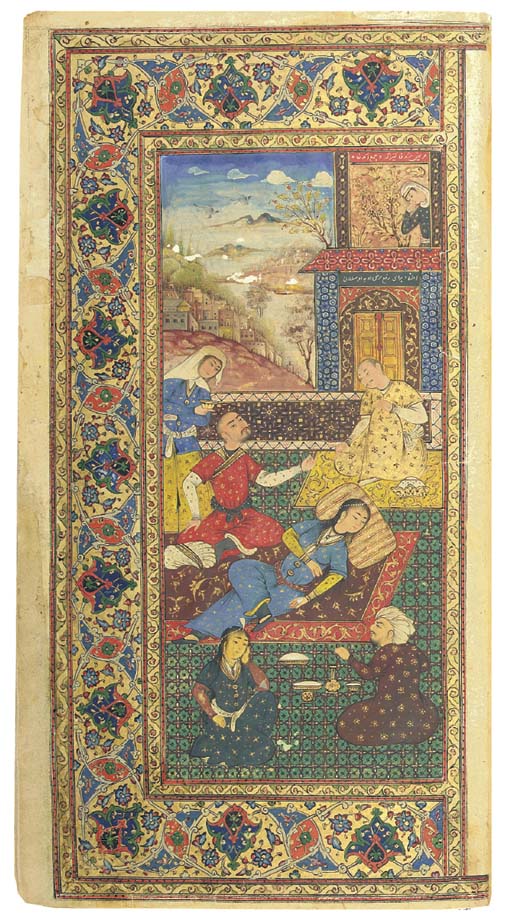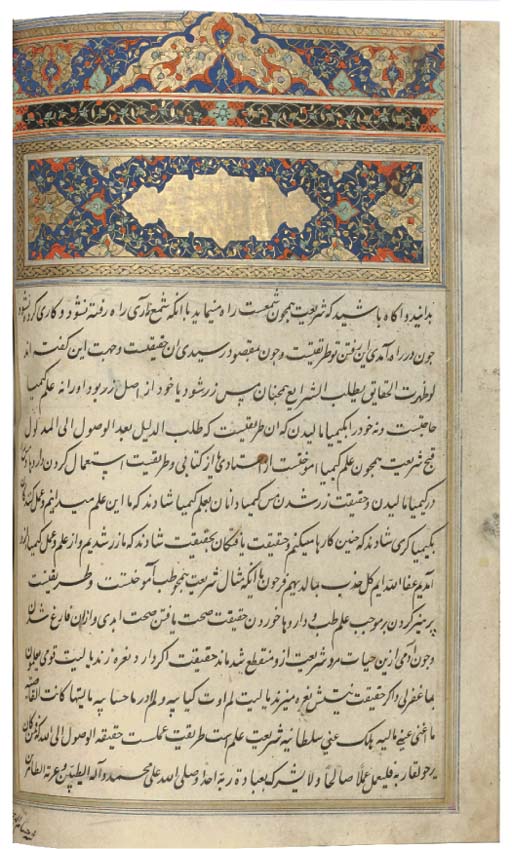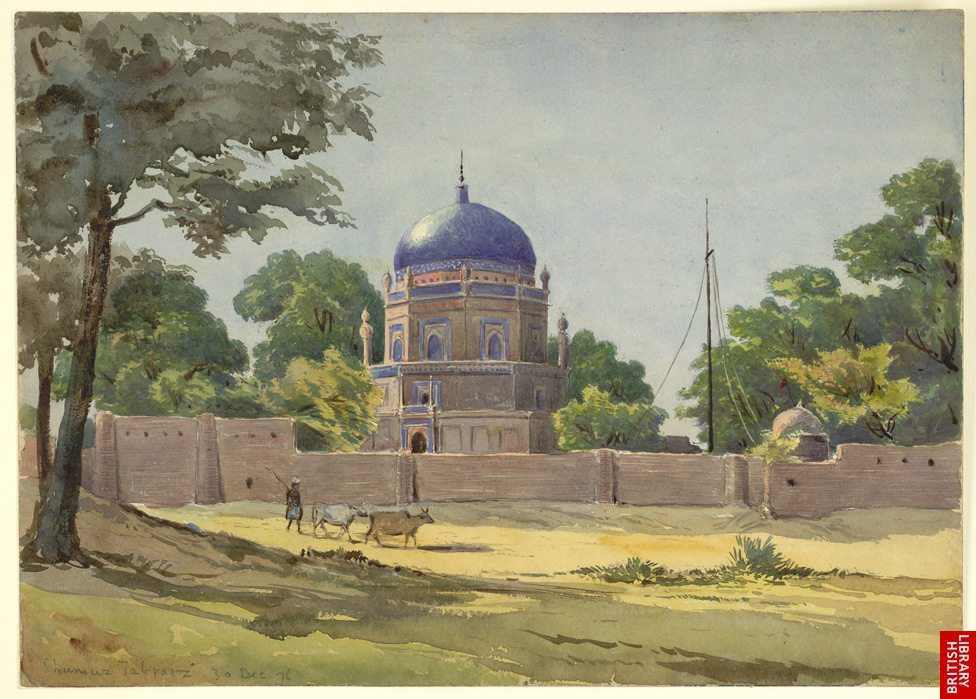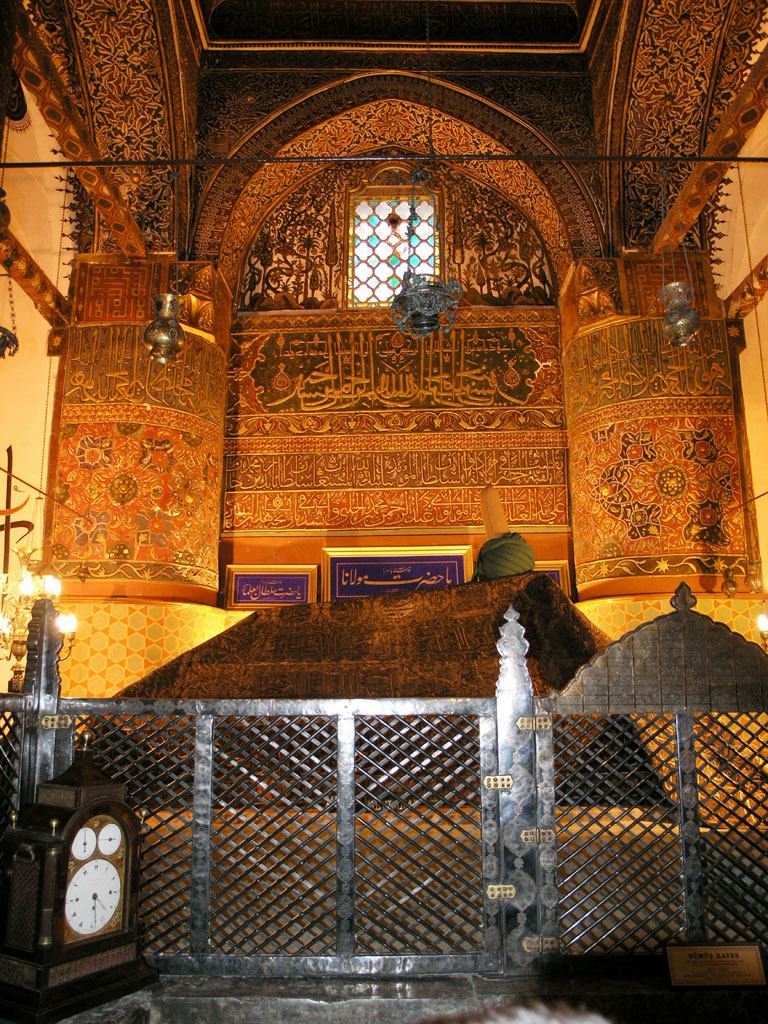

An illustrated Rumi manuscript from the earlier 1600's, with a remarkably complex history of composition
Source: http://www.christies.com/LotFinder/search/LotDetail.asp?sid=&intObjectID=4351364&SE=CMWCAT03+1284109+%2D1427039060+&QR=M+1+62+Aqc0000900+1227075++Aqc0000900+&entry=india&SU=1&RQ=True&AN=63
(downloaded Sept. 2004)
"Lot Description: MAWLANA JALAL AL-DIN RUMI (d. AH 672/1273 AD) AL-MASNAVI
AL-MA'URI
PROBABLY INDIA, 17TH CENTURY WITH LATER ILLUSTRATIONS. Persian poetic
manuscript, 572ff. with 16 illustrations, 15ll. of small black nasta'liq
in two columns with further text written diagonally, with gold and red
rules and further marginal notes in black and red, illuminated headings
at the beginning of each poem, later double-page illustrations in gouache
heightened with gold painted in the Safavid style, with illuminated borders,
late Safavid Iranian black Morocco binding without flap, with stamped gold
decoration of birds in trees, doublures with inlaid polychrome panels of
lion bringing down deer within cental cartouche. 10¼ x 5½in.
(26 x 14cm.)
Lot Notes: Sections are dated between rabi' al-awwal and dhi'l-hajja, 1068/December, 1657-September, 1658.
The preface states that the following mathnavi was put together after having consulted over 80 other manuscripts. The work originally started in Ahan Push of Afghanistan in 1024/1615-16, followed by the second attempt in 1025/1616-17 in Peshawar, and the third attempt 1031/1621-22 in Burhanpur. The preface includes the name of the author and the scribe as : 'Abd al-Latif ibn 'Abdullah al-'Abbas, who gives the date of completion in abjad equalling 1032/1622-3.
The author of the preface and the scribe is not recorded."

A leaf from Rumi's famous "Masnavi," copied in the 1800's
Source: http://www.christies.com/LotFinder/search/LotDetail.asp?sid=&intObjectID=4692242&SE=CMWCAT03+14413+214717468+&QR=M+1+76+Aqc0000900+12361++Aqc0000900+&entry=india&SU=1&RQ=True&AN=77
(downloaded Mar. 2006)
"JALAL AL-DIN RUMI: MATHNAVI M'ANAVI, NORTH INDIA, 19TH CENTURY. Persian manuscript on paper, 242ff. with 19ll. of black nasta'liq in four gold-outlined columns, titles in red, four folios with illuminated headings, misbound, in modern brown binding- 12¼ x 8½in. (31 x 21.5cm.)."

*"The tomb of Shams-i-Tabriz, Multan (Punjab). 30 December 1876," a watercolor by Alfred Pollock Harcourt* (BL); Rumi named his famous "Divan-i Shams-i Tabriz" after this beloved spiritual companion

Maulana Rumi's tomb, in Konya, Turkey
Source: http://www.vilett.com/John/TurkeyPublic/page10.html
(downloaded Jan. 2007)
== Indian Routes index == Indian Routes sitemap == Glossary == FWP's main page ==